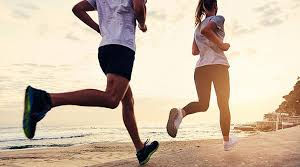I'm overweight and I want to start running, how do I do it?
- Bilal Mobologics

- May 21, 2018
- 2 min read
There are several factors to consider before starting. For example, if at rest you are already hypertensive and the heart rate is high you have to perform the activity with caution
Summer is approaching and the interest to lose a few kilos increases. Even more so among people who are overweight or obese, who sometimes start diets and exercises that, if performed without control, can lead to the development of injuries. If for some time now we have not done any kind of sports activity, before starting it is advisable to carry out a small check to assess the state of the heart.
Obese patients have a cardiovascular risk profile that must be assessed before starting a sports practice. The control of blood pressure levels, lipid profile and cholesterol and glucose levels serves to assess the general condition of the obese person. In addition, a stress test can help to know how the patient's heart physically behaves in a controlled environment.
Obesity conditions physical activity. Each person starts from a basal level. In obese patients, for example, resting heart rate should not approach 90 beats per minute and resting blood pressure should be between 130/75. If at rest you are already hypertensive and your heart rate is high, you must perform physical activity with caution and, before starting to run, take into account these factors.

Obese people tend to sweat more when they start running to thermoregulation, which requires adequate hydration due to excessive sweating. Excessive sweating is an adaptive method to disperse heat and maintain a stable body temperature, so it is natural that at the beginning of the exercise this response is activated.
Before starting an intense sports practice, you should try to lose weight; knees and feet are the joints that suffer the most. The best way is to start running and doing it in small steps. The Steps Counter App gives you 30 days running challenge that from start to end gives you small tasks of running on daily basis.
With sweat, not only can water be lost but also electrolytes such as sodium and chlorine, so it is necessary to carry out an early replacement of liquids -even during exercise- with water and mineral salts to avoid important dehydrations. In people not accustomed to intense physical activity, dehydration is especially dangerous because the mechanisms of temperature self-regulation may take time to start.
Anyway, if overweight is very important, it is not recommended to start with the ‘running’, but for sports activities with less impact to the knees, such as walking, swimming or cycling. In overweight people, impact sports should be avoided, because they cause great joint wear. The more mass you have to move, the more strength the joints must support.

Before starting an intense sports practice, you should try to lose weight through diet, since the knees and feet are the joints that suffer most in patients with obesity due to the impact. An exercise like a popular race, although performed at low heart rates, can cause joint pain, tendon pain and long-term degeneration of the articular cartilage.
Also see some other Ten tips to lose weight without our health being affected.






Comments